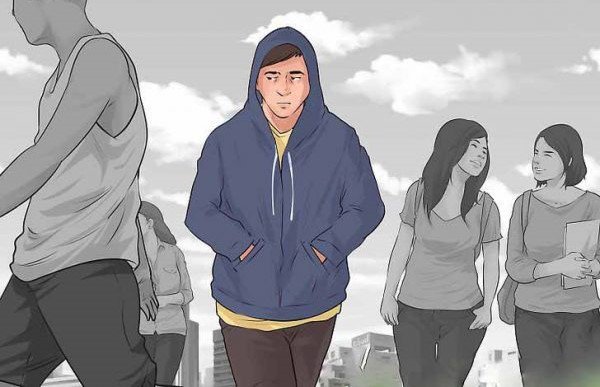Fear of people can be a sign of social anxiety disorder
People with social anxiety disorder (SAD) are very fearful of social situations and activities in public for fear of being embarrassed, humiliated, or negatively judged. Whether you fear only one type of situation (such as public speaking) or most other social situations, social anxiety can have a serious impact on your life.
1. Signs of Social Anxiety Disorder
If you are fearful of social situations, social anxiety can manifest with a range of symptoms, including:
Avoiding certain social places or situations Avoiding eye contact Blushing Feeling afraid that people will judge you Feeling nauseous or having an upset stomach Feeling very self-conscious Heart pounding Hands clasped Short of breath Sweating In addition to being afraid of people, people with anxiety Society is often afraid of others noticing their anxiety. The "fear of fear" or the cycle of panic that develops can be difficult to get rid of on your own.
2. What Causes Social Anxiety Disorder?
We do not know the exact reason why some people develop social anxiety disorder while others do not. Research suggests that it may be a combination of the person's genetic and environmental factors.
Scientists have discovered specific gene variants that are likely linked to social anxiety. It is hoped that understanding these variations may help them determine the cause of the disorder.
If you have social anxiety disorder, you won't be able to pinpoint your fear of people because of a single cause. However, you may remember a triggering event, such as being embarrassed in front of a group or being harshly or critically reprimanded by a parent in public. For some people, underdeveloped social skills can be a contributing factor to their social anxiety.
Why are you afraid of some situations and not others?
Each person with social anxiety disorder will have their own fears, meaning that the specific social situations they fear will vary from person to person with the disorder.
Some people have very limited worries, such as fear of public speaking. This type of social anxiety is usually less chronic and more severe than people who fear most social situations and activities.

Nguyên nhân của chứng rối loạn lo âu xã hội có thể là sự kết hợp giữa yếu tố di truyền và môi trường
3. Diagnosing Social Anxiety Disorder
If you think you may have social anxiety, you can assess your fear of people and try to determine if it may reflect an underlying mental health disorder. hidden or not. The following questions can help you begin to assess your anxiety and help you decide if you might benefit from seeking treatment:
How often has your fear of people been experienced? it's along time? Does it change or remain constant across situations and people? How much does your fear of people interfere with your daily life? Have you ever dropped out of class or lost your job because of this fear? Does fear follow you throughout your daily life? Do you consider yourself an introvert or an extrovert? While both introverts (those who gather energy by being alone) and extroverts (those who derive energy from being with others) can suffer from social anxiety, those Introversion can be mistaken for social anxiety.
If you find that social or performance situations can make you feel drained but they don't cause you particular anxiety, it could be that you simply want more time at a me. Because anxiety is so common and affects women twice as often as men, experts now recommend that all women 13 and older get anxiety screening as part of their services. routine preventive health care. If you find that social situations make you anxious, affecting different aspects of your life, talk to your doctor or mental health professional.
During your evaluation, your doctor will review your medical history, perform a physical exam, and possibly conduct laboratory tests to help rule out medical conditions that may be contributing to your symptoms. friend. Your doctor can then diagnose social anxiety disorder if your symptoms meet the DSM-5 diagnostic criteria for the condition.
4. Treatment of Social Anxiety Disorder
If symptoms interfere with your daily functioning or cause stress, it is important that you work with a mental health professional. Your doctor can help develop a treatment plan that's right for you.
People with social anxiety disorder do not always need medication, but the disorder is often treated with therapy, medication, or both.
Selective serotonin reuptake inhibitors (SSRIs) are drugs of first choice used to treat social anxiety disorder. When combined with talk therapy, such as cognitive behavioral therapy (CBT) or acceptance and commitment therapy (ACT), treatment success rates are very good.
Để đặt lịch khám tại viện, Quý khách vui lòng bấm số HOTLINE hoặc đặt lịch trực tiếp TẠI ĐÂY. Tải và đặt lịch khám tự động trên ứng dụng MyVinmec để quản lý, theo dõi lịch và đặt hẹn mọi lúc mọi nơi ngay trên ứng dụng.
Reference source: verywellmind.com





